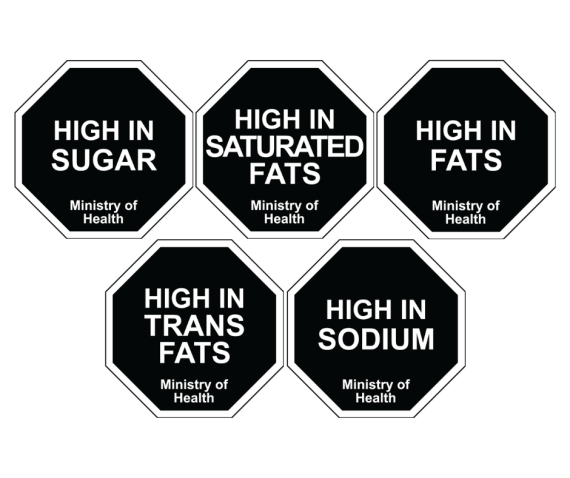Ground-breaking Research Shows Easy-to-Understand Front-of-Package Labels Could Reduce NCD-Related Deaths by 16% in Barbados, Saving Up to $732.8 Million

October 4, 2023
Ground-breaking research reveals that front-of-package warning labels could reduce NCD-related deaths by 16% in Barbados, saving up to US $732.8 million. The study examines the impact of octagonal warning labels on health habits and highlights the economic benefits of implementing these labels.
Ground-breaking research has revealed that easy-to-understand front-of-package warning labels could potentially reduce noncommunicable (NCD)-related deaths by 16 per cent in Barbados where NCDs account for eight out of every ten deaths.
This could translate to savings of up to US $732.8 million, according to the research conducted by The University of the West Indies (UWI), in partnership with the Pan American Health Organisation (PAHO).
The modelling study, which is the first of its kind in the Caribbean and part of a series in several countries of the Americas, focuses on the impact of the octagonal front of package warning labels (OWLs) in the fight against NCDs.
It examined the link between behavioural habits, such as diet, exercise, smoking, and alcohol consumption, and deaths from 24 distinct NCDs. Data was primarily sourced from a national survey undertaken by the University of the West Indies (the Barbados National Salt Study), which analysed the dietary habits of adults over the age of 25.
The study compared the current situation, devoid of any labels, with an alternative scenario implementing the OWLs proposed by the Regional Organisation for Standards and Quality (CROSQ) for the Caribbean Community (CARICOM).
The findings highlight that introducing these OWLs has the potential to shape healthful consumer choices. This is attributed to consumers’ positive response to the clear and easily understandable information on the labels.
“Such clarity leads to a reduction in the consumption of critical ingredients such as sodium, saturated fat, and added sugars, thereby diminishing the health risks associated with NCDs. Moreover, the study highlights the considerable economic benefits tied to these health improvements, notably in terms of improved workforce productivity and wider economic advantages,” according to a PAHO statement.
“In this region, persistent issues include non-communicable chronic illnesses such as diabetes, cancer, and cardiovascular diseases, coupled with their related risk factors. These ailments often result in early deaths, escalated illnesses, and disabilities. This research is therefore both timely and critical, as it accentuates the benefits of urgently rolling out OWLs to ensure individuals have the means to make more informed dietary choices.”
Building on ongoing initiatives, this research offers vital evidence-based backing for the urgent need to address NCDs in the region. In the wake of the Bridgetown Declaration, Caribbean policymakers have intensified their efforts, taking targeted and decisive measures to hasten the reduction of NCDs within Small Island Developing States (SIDS) regions.
The study reinforces the collective endeavours of organisations such as PAHO, the Healthy Caribbean Coalition (HCC), the Caribbean Public Health Agency (CARPHA), and research entities in the public interest, to provide the population with the best policy options to protect public health.
“These entities are at the forefront, driving awareness about OWLs in the public sphere and supporting their adoption in ongoing policy-making deliberations,” said PAHO. “Without effective measures and decisive actions to prevent unhealthy diets, NCDs will unfortunately increase, with irreversible consequences on health, economic development and productivity.” (BT)


